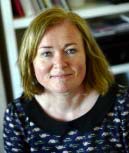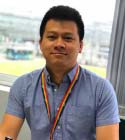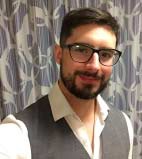What should be top of the agenda on every teacher training course? Melanie Butler asked a group of former Masters students from the UCLan Masters in TESOL and Applied Linguistics
T here was no clear consensus. Although all three Chinese respondents chose methodology for the top of the agenda, their other answers ere different: testing and assessment, second language acquisition and learner-centred teaching, charmingly defined as, “how to ensure your students are at the centre of the action.”
There was a clear consensus of what they found as best about of the course: “wonderful teachers”, “nice teachers”, and “incredibly supportive, knowledgeable and inspriring!” One teacher also had a shout out for “the library.”
Six former students from one university, of course, are not a representative sample, although the nationality breakdown reflects the reality of UK Masters courses across all subjects: twothirds are international students, with the largest group being Chinese.
Less typical was the educational background of the participants – every single one had studied English language or English education at first degree level, though both the native speakers had combined this with a foreign language. All but one of the group were state qualified teachers, and all but one had three or more years’ classroom experience. UCLan clearly attracts some very serious educators.
The importance of Second Language Acquisition (SLA) was a constant theme in the feedback, with over half our respondents citing it as the most useful thing they had studied on their course, and three citing it is as one of the most interesting.
“It clued me in and opened my mind,” writes Robert Hutchinson. While Khao Nguyen found it fascinating, commenting that it “developed my understanding of the current view on the process of second language use and learning.”
The importance that the majority of respondents gave to SLA made me wonder whether we shouldn’t be focusing on this earlier in teachers’ careers. Remember, every teacher in this sample had a first degree, including English language, and were trained to at least a diploma or state qualified level. On average, they had been teaching for five years.
Yet, the first time they were really exposed to SLA theory was when they did a Masters degree – and for most of them the experience was revelatory.
Testing and Assessment was another subject that had a lot of supporters. Khoa Nguyen sums the feeling up: “Teaching and testing go hand-in-hand, as there is a backwash effect both ways,” he argues. “I believe obtaining knowledge about how to properly assess the progress students make can help a teacher improve.”
“Teaching and testing go hand-in-hand, as there is a backwash effect both ways…”
One thing that struck me, reading through the responses, was how little difference there was between the impressions reported by the L1 English teachers and the non-native speakers. The normal grumbles about “too many students didn’t have enough English” or “the English students weren’t very friendly,” were nowhere to be seen. A credit to the collaborative environment the UCLan team have created.
I was also amused by the comment from Sun Guanhua who wrote that she found Language Analysis the most interesting aspect of her course because, “I saw our classmates whose first language is English confused by grammar, sentence structure analysis, etc. I was interested as to why they didn’t understand their mother tongue when it came to grammar.”
Elisabeth McGlynn knows just what Sun means. She admits to finding language analysis the most challenging area, saying, “picking the language apart and naming the parts did not come easily, though I can see now how useful it is!”
Sun found it useful too. “I tried to compare English and Chinese,” he reports, “ I looked back at what we know about our native language … Besides the heated discussions in class motivated us students to learn.”
How a subject was taught, as opposed what was taught, comes through as a key strength of the UCLan programme.
All the former students commented on how much they learned about teaching from their own experience in the classrooms.
Yu Haihong sums the general feelng up: “The different kinds of methods and approaches really opened my mind,” she writes.
“I deeply enjoyed our group tasks and presentations, for which we had to discuss and cooperate with classmates,” she adds. “Each group having to do different themes was also very interesting.”
“The assignments were practical, for instance asking us to reflect on our learning or teaching experiences or to think about interventions in specific classrooms,” she concludes.
So, what should be on the top of the teacher training agenda? The message from the UCLan example is clear: the way you teach your trainees is as important as what you teach them.
My UCLan experience
We asked our six survey respondents to describe their feelings about their Masters in three words.

“Fun, stimulating, Challenging” –Elisabeth McGlynn
“Busy, fulfilling, and enjoyable” –Sun Guanhua

“Enjoyable, exciting, inspiring it … reshaped my world view” –Khoa Nguyen
“Joyful. Rewarding. Fulfilling” –Yu Haihong

“Busy, intense, rewarding” –Robert Hutchinson
“Challenging, peaceful, wonderful” –Li Shufang





